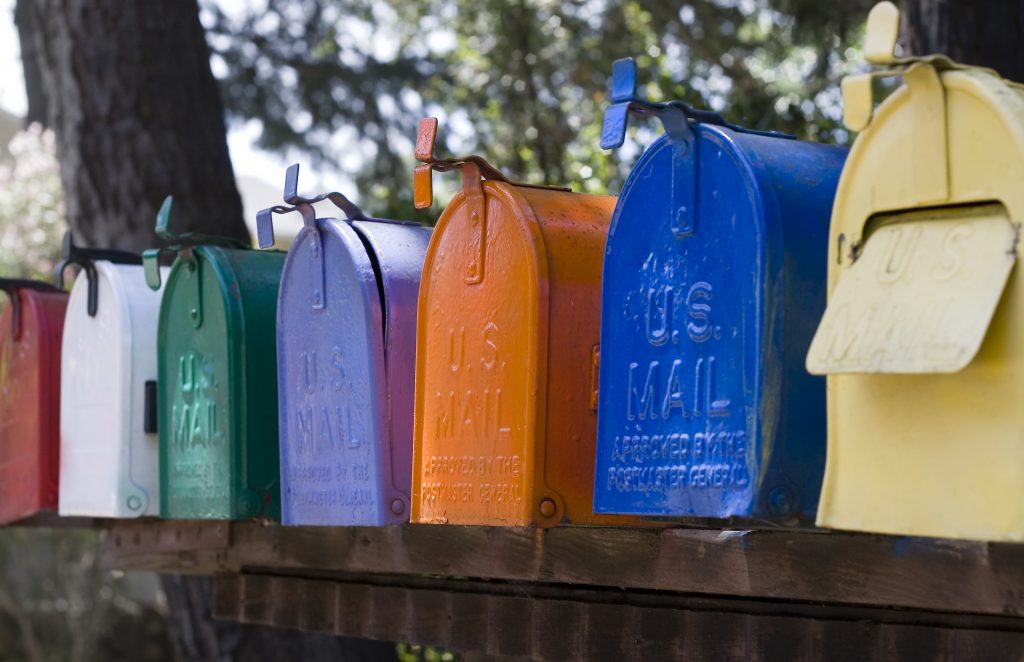Selling Against Marriage Mail
This article was written by Jim Busch.
Recently, I had a call from a publisher asking for my thoughts on selling against a “Marriage Mail” competitor. These mailing companies provide advertisers with a low-cost alternative to doing their own mailings. Marriage mail is very popular with both national and local advertisers. These companies are a serious competitor for free and community papers. As the national advertisers cut back on print advertising, many of these companies are actively pursuing the small local and regional accounts that make up our traditional customer base. To successfully compete with the marriage mail industry, we need to understand their business model, as well as their strengths and weaknesses. In this month’s Link & Learn, we will look at marriage mail and offer some strategies for protecting your customer base and taking away accounts from our direct mail competitors.
Marriage mail are packets of advertising flyers which are delivered through the U. S. Mail. These companies take advantage of the way the postal service prices their service. The best way to understand this is to imagine you want to send a letter to a friend across the country. (Believe it or not, some people still do this even in our digitally obsessed age!) If you are just dropping them a short one page note, the stamp will cost you $0.49. If you have a lot that you want to say and add several more pages your mailing cost will remain the same. You would almost have to write the great American novel and send it to your friend to go over the 1 ounce limit for a first-class letter. Even when you go over an ounce, you don’t have to buy a second full price stamp as each additional ounce will only cost you $0.21. This pricing structure is based on the cost structure of delivering the mail. While most people assume that transporting the mail is the costliest component of delivering the mail, routing and handling the mail is much more expensive.
Because the cost of mailing a marriage mail packet does not directly correspond with the weight of the packet, this mailing format has a strong incentive to deliver as many pieces as possible. Adding additional pieces increases their profits without affecting their mailing cost. For this reason, these companies offer significant discounts to large national firms. When their packets are “light,” they offer some advertisers a “remnant rate,” allowing them to deliver their pieces at a very low cost.
The primary way that consumers evaluate any advertising is to look at the content. Many grocery chains use marriage mail to deliver their weekly sales flyers. Marriage mail sales people often point to these accounts as “proof of readership,” saying that “everyone eats” and “everyone goes to the grocery store.” What they don’t like to talk about are the other ads that come along with the food ads. The remnant ads, which are either inserted into the packet or printed on the “wrap” surrounding it, often look like fugitives
from a 3 a.m. cable TV infomercial. I have seen a wide variety of pitches for “Collector Plates,” questionable insurance plans and cheap kid’s toys in the packet delivered to my home. These small ads tend to fall annoyingly to my feet when I try to remove it from my mailbox. These ads tend to reinforce the average consumer’s perception of these packets as “junk mail.” I have asked a number of people about this and the majority of them said that they pull out the grocery ads and seldom look at the rest of the package. These packets usually contain only a few other local advertisers from a few retail categories. This means that compared to a local community paper, they have little to offer the typical consumer. Just as being in a busy shopping area with a variety of different types of stores benefits a retailer, being in a publication with lots to choose from attracts more shoppers. It pays to ask your employees, friends and relatives to save their marriage mail packets so that you can analyze them and discuss their content with advertisers.
Consumers see the local paper as an important part of their community. This is true for publications that include local editorial content and those that contain 100% advertising. People consider local content of all kinds
important to running their households. The popularity of local newspapers rubs off on their advertisers. A 2012 survey conducted by the Newspaper Works and Brand Navigator found that consumers are three times more likely to positively view businesses which advertise in the local newspaper compared to advertisers in letterbox flyers (58% versus 18%). There is also a big difference between the retention rates of local papers and marriage mail packets. The average home receives 848 pieces of junk mail every year, 44% of this is thrown away without being read or opened. Most direct mail is disposed of within 24 hours of receipt. CVC Audit data has found that more than 50% of local papers are retained in the home for 3 or more days. You can consult your paper’s audit to get your publication’s retention rate.
Buying advertising in a local paper compared to most marriage mail packages is akin to buying a tailored suit or buying off the rack at Walmart. In the first case, you can order exactly what you want, in the second, you must settle for what you get. With marriage mail, the business owner can have any type of ad they want, as long as it is an insert! In a local paper, they can choose from a wide variety of display ads or inserts. They can size the ad to suit their specific business needs. If they want to promote one special item, they can run a small ad with just that one item. If they are holding a big “Anniversary Sale”, the business owner can buy a double truck or a large insert. This is an important talking point when selling against marriage mail. One of the main reasons that people choose to go into business for themselves is that they want to be the “boss.” Entrepreneurs, by definition, do not like to be told what to do. In a local paper, they have far more control over their advertising program.
In many cases, the coverage of a marriage mail package is determined by someone from outside the market. The national mailing firms use post office zip code maps to design a distribution area which reaches the number of people they wish to reach. This distribution is created with the needs of the mailer in mind and no thought is given to local shopping patterns or the needs of local businesses. Frequently, businesses are forced to buy coverage that lies outside their service area to get the areas they want. Because they are an integral part of the community, local publishers understand the dynamics of their markets and target the people their customers want and need to reach. In my experience, marriage mail reps are often very vague about the areas they reach. Their customers should request copies of postal receipts to confirm where they go and to verify that their distribution is accurate.
To survive and thrive in today’s dynamic economy, local businesses must remain flexible. For example, if a storm hits keeping people at home during a planned sale, a business may be stuck with a large amount of unsold merchandise. This can be very costly, especially if these products have a short shelf life. Their local paper rep will hustle to get a “Sales Extended” ad in the next edition of the paper. Their marriage mail rep with tell them “Gee, I’m sorry to hear that.” The long lead times, often a month, required by marriage mail providers means that businesses need to plan their promotions far in advance. It is difficult for business owners to predict what their business needs will be in 6 to 8 weeks in an ever-changing market. With their local paper, they can take advantage of changes in the weather, breaking trends and specials offered by their vendors.
Marriage mail does offer some advantages to the local business owner. These packets allow businesses to get total market coverage at a fraction of the cost of solo direct mail. Smart business owners know that delivery is just one small part of a successful marketing program. To motivate consumers a promotion must reach more than their mailbox, it must reach their hearts and minds. Most people consider most of the promotions they find in their mailboxes as “junk mail.” They find it more annoying than useful. An exception to this is a local mailed shopper, which provides them with information on promotions by the local businesses where they shop and money saving offers. If they subscribe to a paper or pick it up from a rack while shopping, they are also likely to enjoy it and be engaged by its content. Marriage mail reps, like all good sales people, try to focus the conversation on their products strong points. In their case, they try to frame “distribution” and a cost comparison to “solo mail” as their key talking points. As free paper reps, we need to change the conversation to shine a light on our key selling points. Here is a recap of our strengths compared to marriage mail:
SM
- Image—Most people associate their local paper with their community. They see their local paper as a vital link to the local businesses where they shop. Most consumers see marriage mail as “junk mail” and find it annoying and of little value. The consumer’s opinion of these two media impact their view of the businesses which advertise in them.
- Engagement—Because the content is varied and valuable, local papers have rates of readership. The limited interest consumers have in many of the promotions contained in marriage mail packets means that many consumers throw away these pieces without reading them or after giving them a cursory scan. The higher readership of community papers results in better response rates.
- Flexibility—Community papers provide businesses a full range of ways to promote their businesses. This allows businesses to adjust their marketing to fit their current needs. This saves them money and permits them to advertise more consistently.
Local entrepreneurs are presented with a wide range of ways to market and promote their businesses. As representatives of our local papers, a big part of our job is to help our clients make wise choices. We need to understand not only our own products, but our competitors’ products as well, so that we can give our customers sound advice. I may be just a bit biased, but I believe that while marriage mail offers some advantages, the overall value offered by local community papers makes our products a far greater value for our advertisers. By sharing this information with local businesses, we can convince them to “divorce” marriage mail and remind them that local papers are their “one true love.”





